Impact Stories
Action and accountability in the Mexican Pacific shrimp fishery
Harnessing supply chain leverage to address critical issues in one of Mexico's largest fisheries.
SFP has worked with the Mexican Pacific shrimp fishery and supply chain since our founding in 2006. Our work has involved collaboration with stakeholders in both the industrial and artisanal fisheries, to reduce environmental impacts and improve compliance. While there has been extensive evidence of illegal fishing, some shrimp importers are using control documents to verify compliance.
A timeline of improvement efforts in the Mexican Pacific shrimp fishery
Bringing stakeholders together to work toward improvements
2007: SFP brings buyers, suppliers, and producers together in a fishery improvement project (FIP) to advocate for improvements in the fishery and support the efforts of Grupo Valcer, a progressive Mexican shrimping company that is using lower-impact trawl gears. The FIP tests the effectiveness of bycatch-reduction practices, e-logbooks, and remote satellite vessel monitoring systems (VMS) on four vessels. The resulting product is marketed under the Fisherman’s Daughter Wild Sonora Coast Shrimp brand. Although the effort is successful, SFP realizes that lasting change will require a broader approach, and pivots to an industry-wide model.
2008: Working with small-scale producers, processors, and government representatives, SFP helps launch and implement the Bahia Magdalena Artisanal Shrimp FIP, focused on evaluating the environmental impacts of the fishery – including bycatch composition and habitat impact – and improving fisheries management to eliminate illegal harvest and protect the stock.
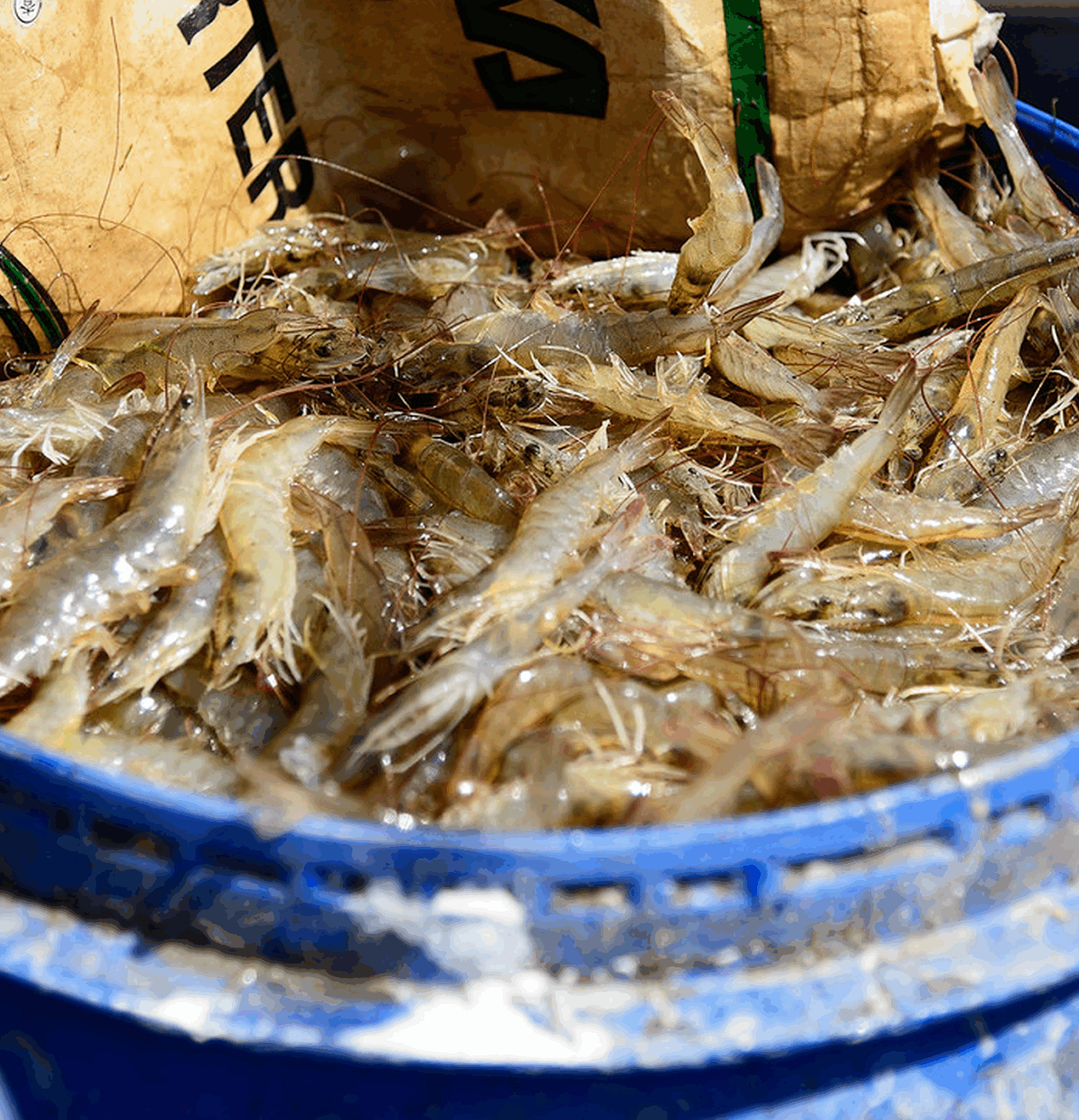
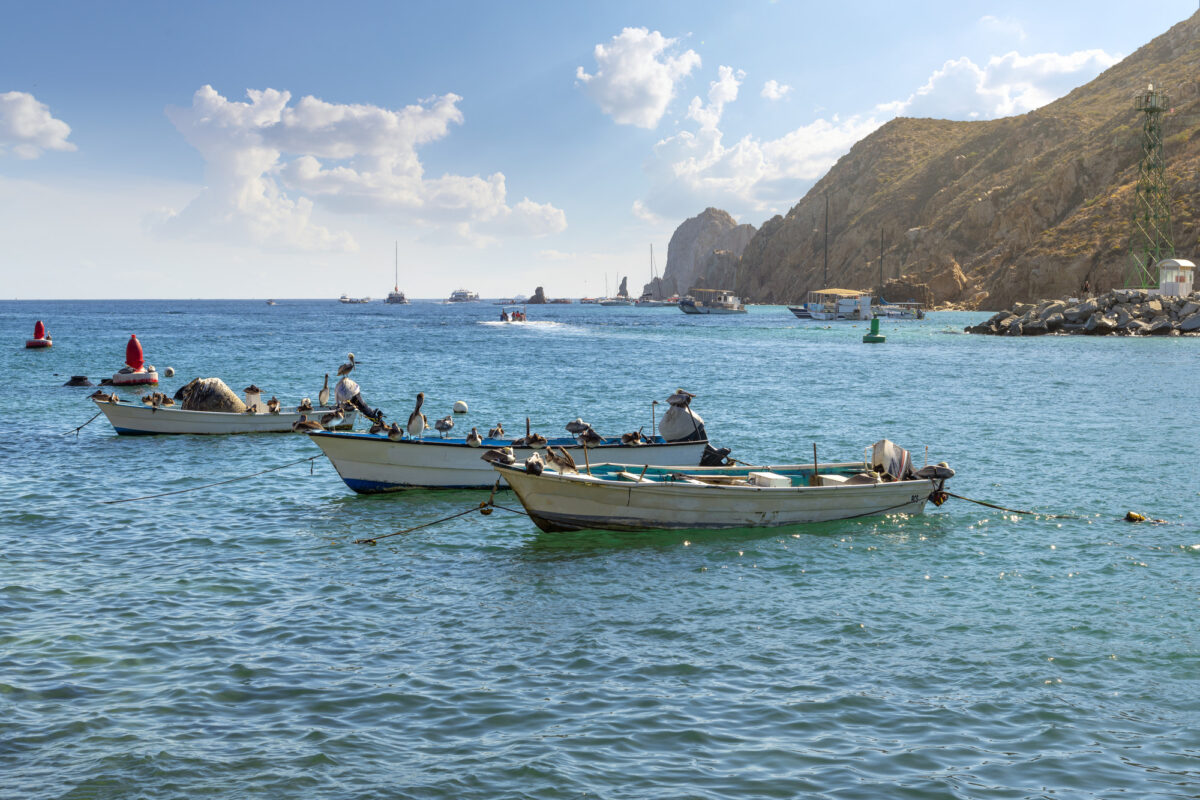
2009: After being approached by a group of US importers and distributors seeking to address decades of environmental damage from trawling in the industrial shrimp fishery, SFP helps launch and implement the Gulf of California Industrial Shrimp FIP, focused on improved fishing gear and full compliance with fishery regulations. Gear experts train fishers on installation, use, and maintenance of bycatch-reduction devices and double footropes.
2010: SFP helps launch and implement two more FIPs in the artisanal shrimp fishery – the Gulf of California Sinaloa Artisanal Shrimp FIP and the Gulf of California Central Sonora Artisanal Shrimp FIP. Like the Bahia Magdalena FIP, the two new FIPs are focused on evaluating bycatch composition and habitat impact and eliminating illegal harvest.
Growing concerns over non-compliance
2011: SFP hires a satellite, a plane, and a boat to conclusively document industrial fleet non-compliance with closed areas and a lack of government response. Through engagement with responsible members of the fleet, SFP then demonstrates that compliance would, in fact, increase revenue to the industry as a whole, because they could catch larger shrimp through legal fishing operations.
In response, several members of the Gulf of California Industrial Shrimp FIP agree to implement requirements for regulatory compliance and audits (control documents) in their own supply chains, to provide an incentive for legal behavior and a deterrent for vessels engaged in illegal fishing. These control documents address non-compliance at the boat level with respect to fishing gear (TEDs), fishing grounds (no-take zones), and landings registry/harvest declaration.
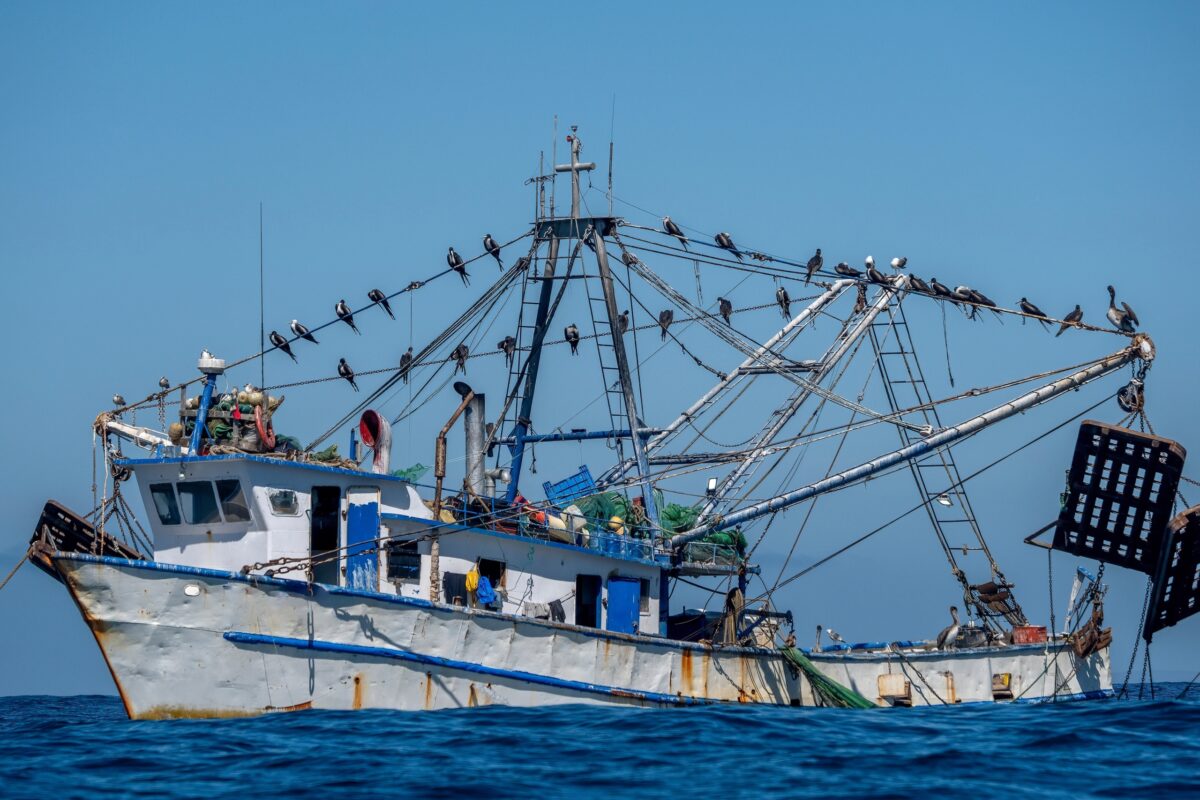
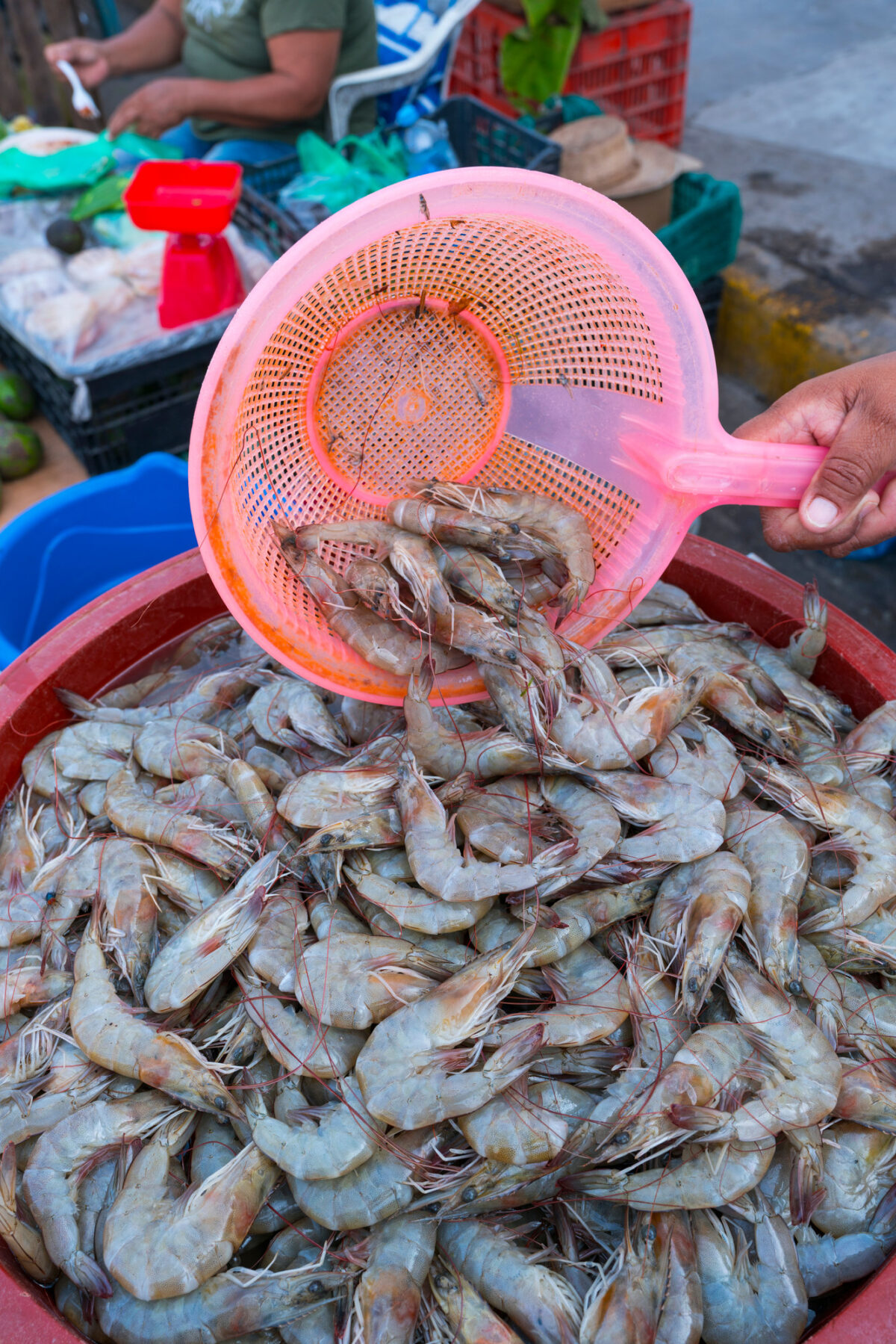
Transitioning to industry leadership
2014: Leadership of the Magdalena Bay Shrimp FIP is transitioned from SFP to Tai Foong/Northern Chef.
2014: SFP launches the Gulf of California Shrimp Supply Chain Roundtable (SR) to facilitate oversight by the mid-supply chain companies of FIPs and other overarching issues.
2015: SFP releases a bycatch report that includes recommendations to catchers and regulators engaged in shrimp fisheries to reduce bycatch.
2015: Leadership of the Gulf of California Sinaloa Artisanal Shrimp FIP is transitioned from SFP to Del Pacifico Seafoods.
2016: SFP helps the Sinaloa artisanal shrimp fishery achieve Fair Trade certification.
2016: The Central Sonora Artisanal Shrimp FIP is suspended after the producers accomplish all of the tasks they are capable of by themselves.
2017: Leadership of a portion of the Gulf of California Industrial Shrimp FIP is transitioned from SFP to PROMARMEX.
Focusing supply chain leverage on critical issues
2017: The Gulf of California Shrimp SR is merged into the new Mexican Seafood SR, which focuses on generating policy improvements across all Mexican fisheries. The SR works to mobilize supply chain actors in Mexico to join the Fisheries Collective Impact Initiative and advocate for policy change, and to press existing FIPs to expand their geographic coverage and number of participants.
2018: In December, SFP receives information from a credible source in Mexico that illegal gillnet-caught shrimp from the upper Gulf of California are being “laundered” using paperwork from bottom trawlers and exported into the US as legal trawl-caught shrimp. SFP works with members of the Mexican Seafood SR to develop and implement a control document system for processing plants to identify when shrimp laundering is occurring. The audit detects inconsistencies in the mass balance of shrimp received and sold – a red flag for laundering – but the seafood importers do not continue to require audits after the conclusion of the SFP-led pilot project.
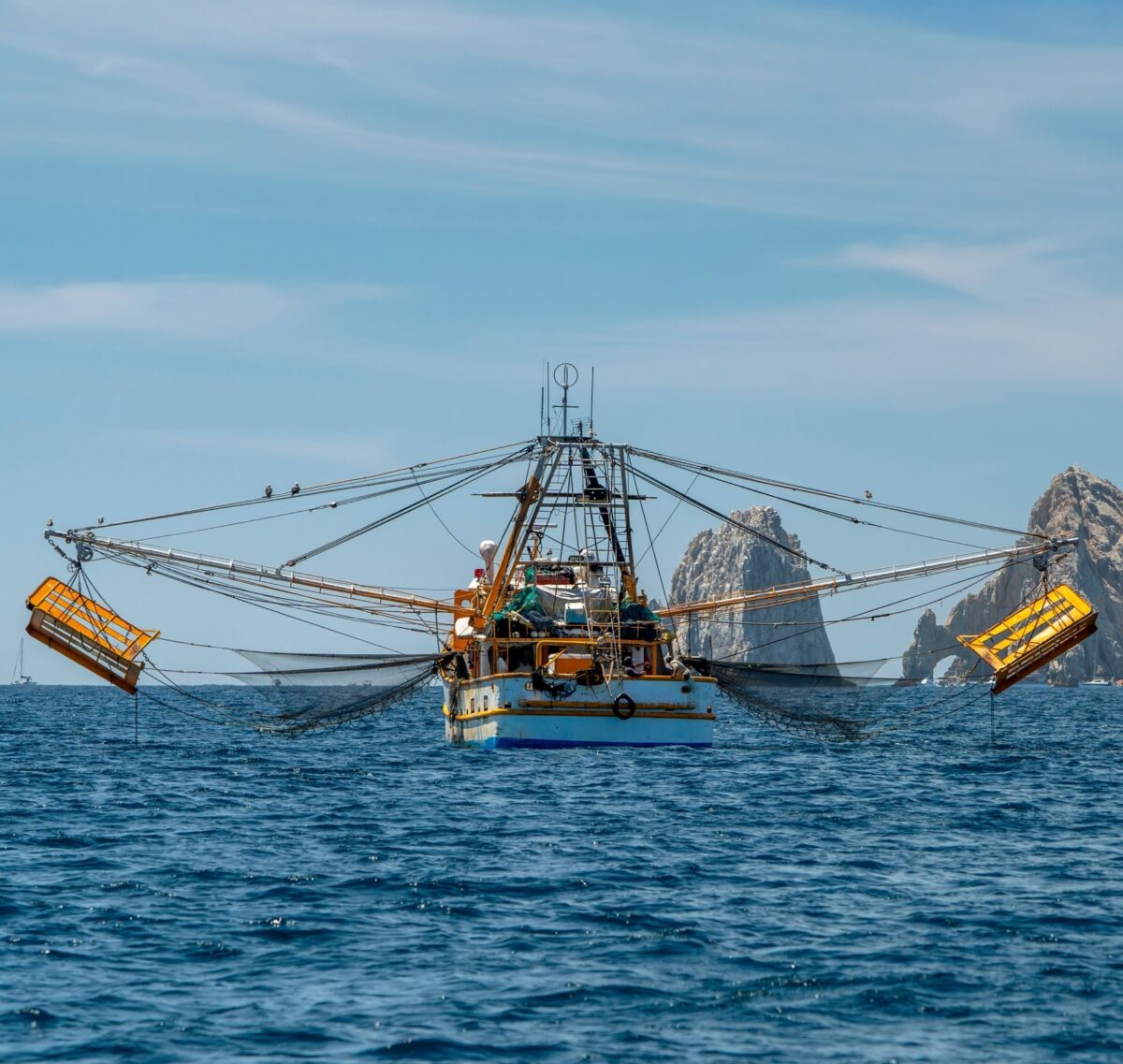
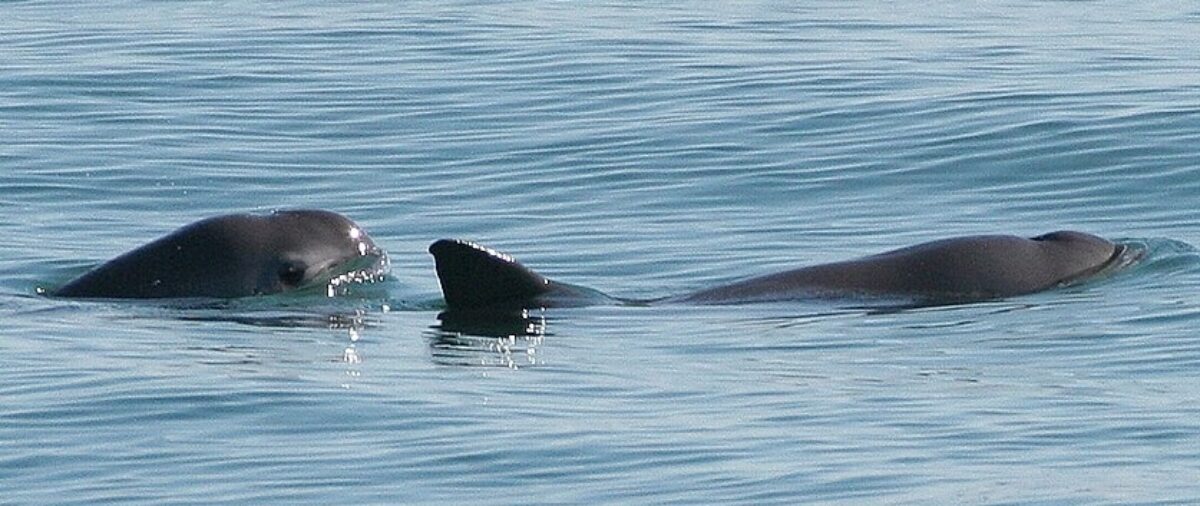
2019: Eight members of the Mexican Seafood SR, all US importers of Mexican shrimp, provide financial support for protection efforts targeting the critically endangered vaquita porpoise in the Gulf of California. The tiny remaining population of vaquita is threatened by entanglement in illegal gillnets. In addition, several Mexican shrimp importers send a letter to the Mexican government asking them to support the development and authorization of gear that does not represent a risk of bycatch for the vaquita and pledging to purchase shrimp caught with that gear.
Ushering in a new era of control document requirements
2020: Stating that the Mexican government is not adequately protecting the vaquita, the U.S. government establishes an embargo on all seafood caught in the upper Gulf of California. Soon after, SFP issues new procurement advice to Mexican shrimp supply chains.
2021: In response to clear evidence that extensive laundering of illegal gillnet-caught shrimp from the upper Gulf of California has expanded and is circumventing the U.S. embargo, SFP dissolves the Mexican Seafood SR and establishes the Mexican Shrimp SR. The new SR has stringent control document requirements for membership, including verification of regulatory compliance for 100% of the product lots purchased by the importer, audits to verify proper gear configuration, and full disclosure of results to SFP.
2022: Only five US importers successfully complete audits for the 2021-2022 Pacific shrimp season: Amende & Schultz, Buena Vista Seafood, Deep Sea Shrimp Importing Co, Eastern Fish Co, and Ocean Garden Products.
2023: Six US importers successfully complete audits for the 2022-2023 Pacific shrimp season: Aqua Star, Cortez Seafood, Inc., Deep Sea Shrimp Importing Co, Eastern Fish Co, Ocean Garden Products, and Pacific Ocean Harvest.
2024: Four US importers successfully complete audits for the 2023-2024 Pacific shrimp season: Cortez Seafood, Inc, Eastern Fish Co, Ocean Garden Products, and Pacific Ocean Harvest.
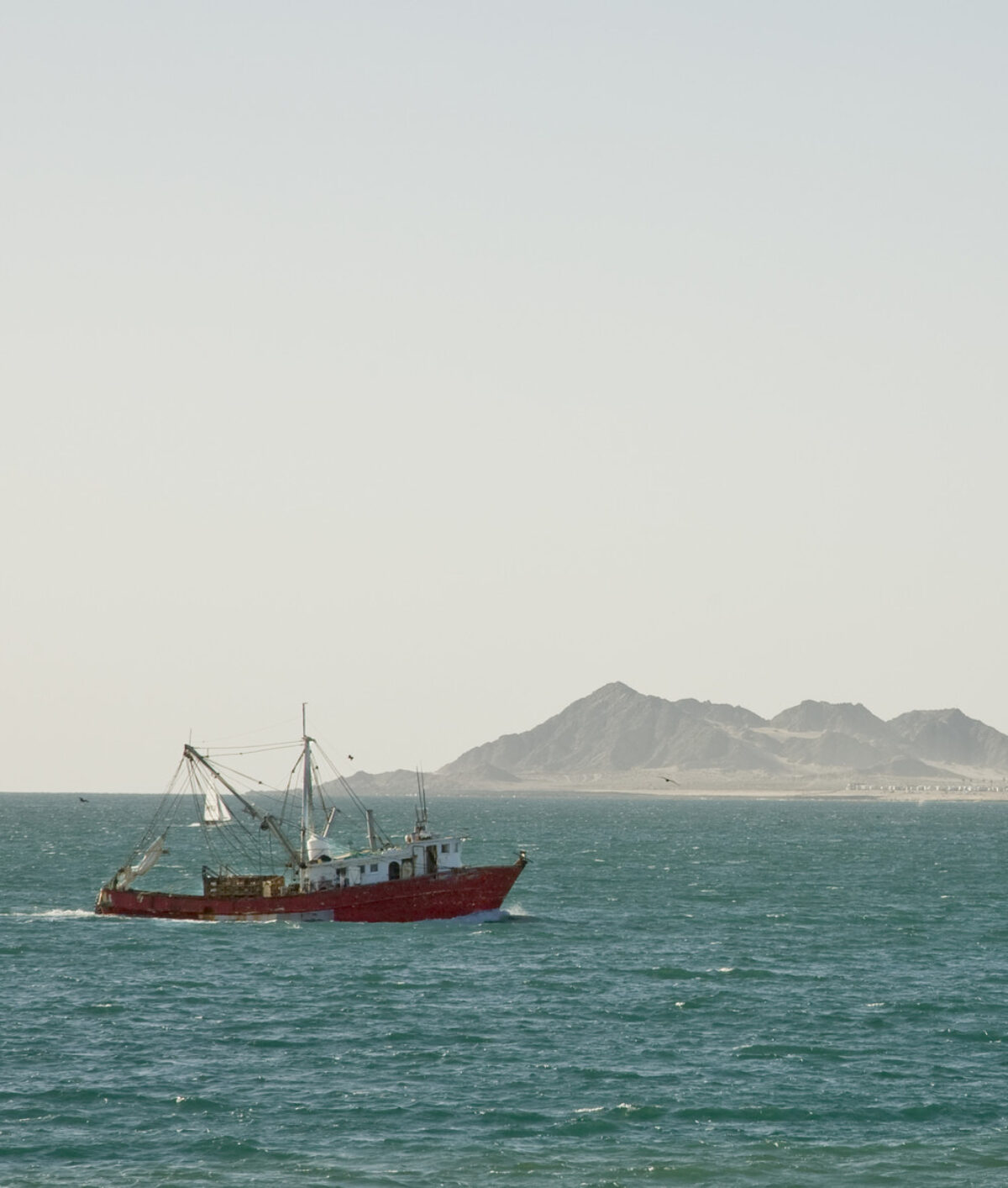
“As a responsible seafood importer, we recognize the importance of balancing the needs of the environment, the needs of fishing communities, and the needs of the businesses that bring seafood to market. The information and advice provided by SFP has helped us to navigate the complex situation in Mexico, and has helped us ensure we are not providing illegal products with access to market.”
– Eric Bloom, President, Eastern Fish Company
Related links
Supply Chain Roundtables
Mexican Shrimp Supply Chain Roundtable (SR) (2021-present)
Current Mexican Shrimp SR requirements for membership
Mexican Seafood Supply Chain Roundtable (2017-2021)
Gulf of California Shrimp Supply Chain Roundtable (2014-2018)
SFP Reports
Trade flow of illegal wild shrimp from the upper Gulf of California, Mexico (March 2021)
Upper Gulf of California Gillnet Shrimp Production and Transportation: 2021-2022 Harvest Season
Upper Gulf of California Gillnet Shrimp Production and Transportation: 2020-2021 Harvest Season
SFP Gulf of California Procurement Advice (March 2020)
SFP Report on the Wild Shrimp Sector: Bycatch in Global Shrimp Fisheries (2015)
SFP Gulf of California Shrimp Fishery Buyer and Importer Procurement Guidance (2011)
SFP Press Releases
Seafood importers backing groups in protecting vaquita (2019)
SFP helps Mexican shrimp fishery achieve Fair Trade certification (2016)
Fishery Improvement Projects
CleanFish Introduces New Shrimp Products (2008)
Bahia Magdalena Artisanal Shrimp FIP
Gulf of California Industrial Shrimp FIP
